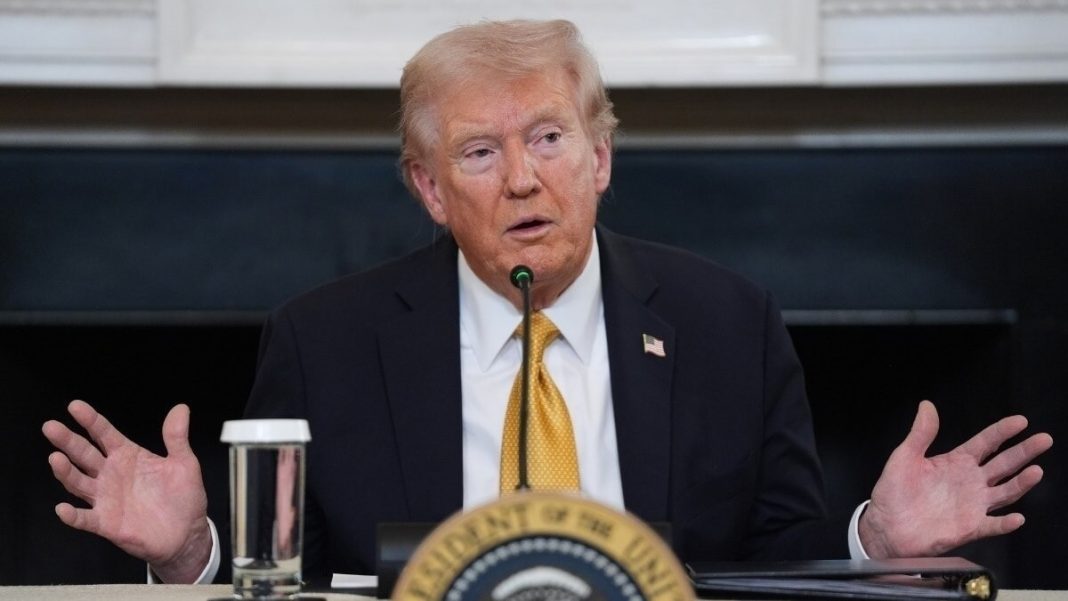In a surprising turn that has resonated deeply within international academic circles, particularly among the aspirant youth of India, former US President Donald Trump has recently voiced support for the enrolment of foreign students in American universities. This defence comes amidst a backdrop of prevailing concerns over stricter visa regimes and immigration policies that characterised much of his previous administration. For hundreds of thousands of Indian students and their families, who view a US education as a gateway to global opportunities, these remarks signal a potential shift in rhetoric, if not immediate policy, offering a glimmer of hope in an otherwise uncertain landscape.
Navigating the Contradictions of US Immigration
Donald Trump’s political career has been notably defined by a robust stance on immigration control, advocating for policies that prioritised national security and American jobs. His administration saw increased scrutiny of visa categories, including the H-1B visa popular among skilled Indian professionals, and rhetoric that often painted international students as potential competitors for American employment. Universities, on the other hand, have consistently championed the immense value of foreign students – not just for their tuition fees, which often subsidise domestic enrolments, but also for their academic contributions, research prowess, and the invaluable diversity they bring to campuses.
It is within this context that Trump’s recent statements acquire significant weight. While specific policy details remain elusive, his defence underscores a recognition of the tangible benefits international students bring to the US economy and its innovation ecosystem. “We need the best and brightest to stay here, to innovate here, and to build here,” Trump reportedly stated, emphasising the contribution of these students to American competitiveness. This pragmatic acknowledgement highlights a nuanced understanding that, despite calls for tighter borders, the US cannot afford to alienate a critical source of talent and revenue if it intends to maintain its global leadership in science, technology, and research.
India’s Stake: A Future in Flux
For India, the US has long been the premier destination for higher education. Annually, over 200,000 Indian students embark on their American academic journey, contributing billions of dollars to the US economy through tuition and living expenses. Beyond the financial aspect, these students often fill critical skill gaps, particularly in STEM fields, and many go on to become successful entrepreneurs, researchers, and professionals, contributing significantly to both nations.
The aspirations of these students and their families are often tied to the prospect of post-study work opportunities, primarily through the Optional Practical Training (OPT) program and the H-1B visa. Policy shifts, rhetoric around “America First,” and the lottery system for H-1B visas have historically created immense anxiety among the Indian student community, forcing many to consider alternative destinations like Canada, the UK, or Australia. Therefore, any indication from a figure as influential as Donald Trump that foreign students are valued is met with cautious optimism in India. It suggests a potential thawing of an often perceived hostile environment, offering reassurance that their investment in a US education might still lead to the desired outcomes.
This sentiment is particularly strong given the high stakes involved. Families often invest their life savings, and students commit years to rigorous study, all with the hope of a brighter future that often involves working in the US after graduation. A more welcoming stance, even if only rhetorical for now, can significantly influence decisions for prospective students currently weighing their options.
The Economic & Strategic Calculus
The US higher education system is a global powerhouse, attracting talent from every corner of the world. Universities rely heavily on international student tuition, which helps fund research, faculty salaries, and campus infrastructure. Furthermore, retaining skilled international graduates is crucial for industries that face talent shortages, particularly in technology and engineering sectors. A consistent message of welcoming these students, regardless of the broader immigration debate, serves the long-term economic and strategic interests of the United States.
In an increasingly competitive global landscape, where countries like Canada and Australia are actively courting international talent with attractive post-study work pathways and immigration policies, the US cannot afford to be perceived as unwelcoming. Trump’s defence, therefore, could be seen as a strategic acknowledgment of these realities – balancing the nationalist rhetoric with the practical economic benefits and the necessity of maintaining America’s intellectual edge.
For Indian students and families, this is not just about political rhetoric; it’s about the very real prospects of their future. While the full implications of Trump’s comments remain to be seen, and concrete policy changes are always subject to the complexities of American politics, his defence of foreign students offers a noteworthy signal. It underscores the indispensable role that international talent, particularly from countries like India, plays in the American narrative, suggesting a potential future where pragmatic economic interests might temper even the most ardent immigration reformist stances.




